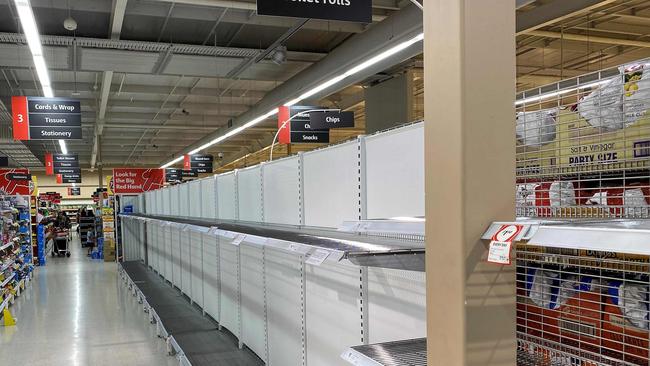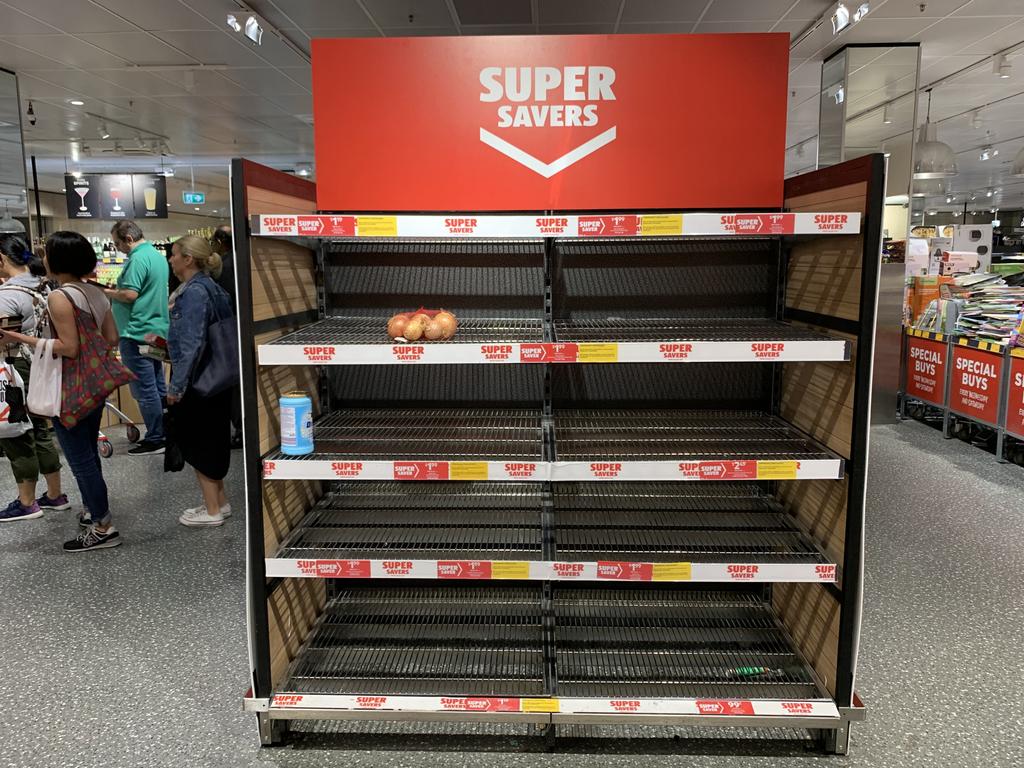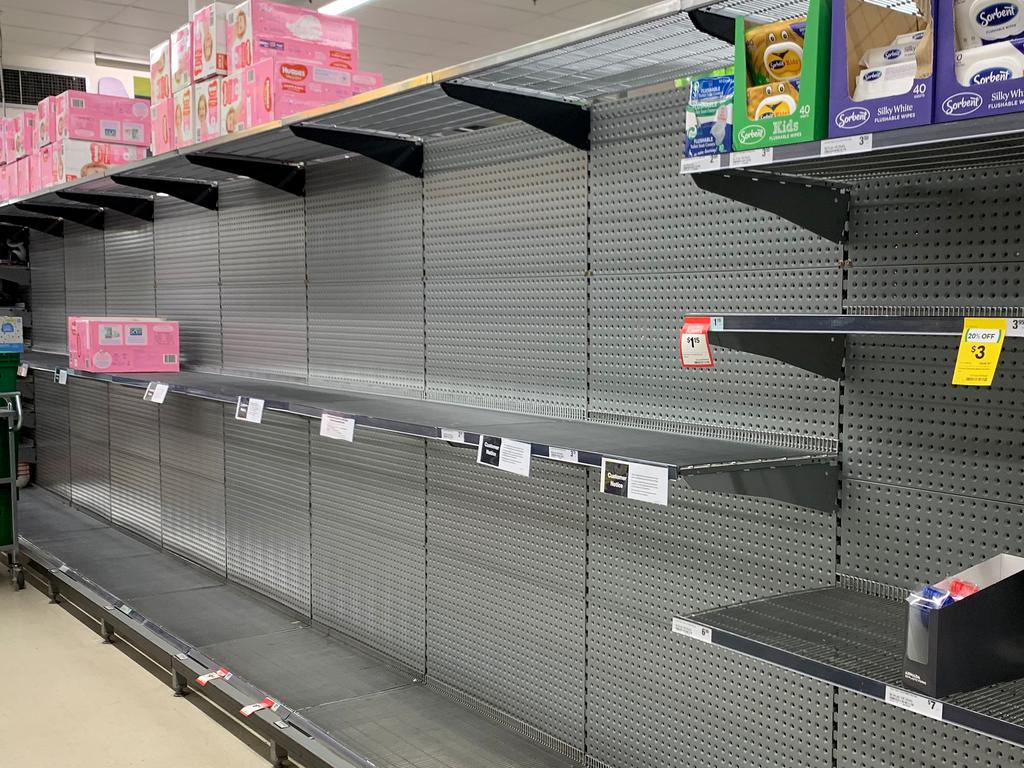Retailers, transport companies call for delivery curfews to be lifted
Local councils are being urged to lift truck delivery curfews for supermarkets in a bid to stock shelves and stop panic buying.

Local councils are being urged to lift truck delivery curfews for supermarkets and other retailers so popular household items such as toilet paper can be quickly replenished and Australians realise they don’t need to panic buy.
The Australian Retailers Association and Australian Logistics Council, which represents heavy vehicle and freight transport companies, warned an immediate issue from the coronavirus was getting stock from distribution centres onto shelves because suppliers were limited by the hours they could deliver goods.
Industry Minister Karen Andrews, who held a roundtable with builders, manufacturers, business and other key supply chain stakeholders in Sydney on Wednesday, will put pressure on local councils to reconsider delivery curfews.
While there were “more than adequate” supplies of critical items such as food and medicines in Australia, Ms Andrews said there had been some delays in importing white goods and products manufactured in China. There have also been shortages of hand sanitiser.
“It is potentially very concerning if you walk into the supermarket and there are some items that are not there, but it is important to note that at any time of the year you could walk into a supermarket and there could be a supply issue with a couple of products that you are needing to purchase,” Ms Andrews said.
“We are going to do everything that we possibly can to expedite that so that when people walk into the supermarkets they are actually seeing the shelves stocked.”
Australian Local Government Association president David O’Loughlin said curfews on retail deliveries were in place to balance the amenity of local residents with restocking. He acknowledged there needed to be a degree of flexibility in special circumstances such as the coronavirus outbreak “to ensure communities can access grocery items in a timely manner”.
Property Council chief Ken Morrison cautioned there would be an economic impact as the coronavirus spread and people’s movements were restricted, with support for small business, employment and investment critical.
“There will need to be that balance on how long the economy can be in pause mode while we deal with the actual health impacts of the virus. The big question is how long can that period last before the (economic) impacts of that become too significant?” Mr Morrison said.
“There are supply chain issues that are being managed but I’m not aware of any projects that have been stopped. If the health advice is you can’t put construction teams onto a site because of potential health impacts, that site can’t progress. The jobs consequences of that are quite significant.
“The current phase has been all about the supply impacts from a crisis in China. The next economic phase will be all about the supply of labour here in Australia.”
Russell Zimmerman, ARA executive director, sought to assure Australians that supplies were plentiful in distribution centres and factories around the country, but warned the issue of panic buying was breeding itself, and that allowing expanded delivery hours would allow an opportunity to stop the cycle.
“So for example it may cut off at 10pm at night time and you can’t deliver before say 7am in the morning. If we could get those trucks into those retail stores at other times beyond the curfew times, there is a huge opportunity to get the stocks into the shelves so that people would then realise that the stock is there,” Mr Zimmerman said.
‘Sad part is the stock is there’
“Nothing breeds a problem more than what we’re seeing on the shelves at the moment.
“The sad part is the stock is there so there’s no need to panic buy. I cannot emphasise that enough.”
Mr Zimmerman also noted that panic buying and empty shelves was more prevalent in urban areas, saying that regional areas haven’t been affected as much.
Elizabeth de Somer, Medicines Australia CEO, was also present at the roundtable and conveyed there were no issues of medicine supply in Australia because manufacturers keep “at least three-six months of medicine supplies” in Australia, and that obligations to restock PBS medicines in 24 hours were able to be met.






To join the conversation, please log in. Don't have an account? Register
Join the conversation, you are commenting as Logout